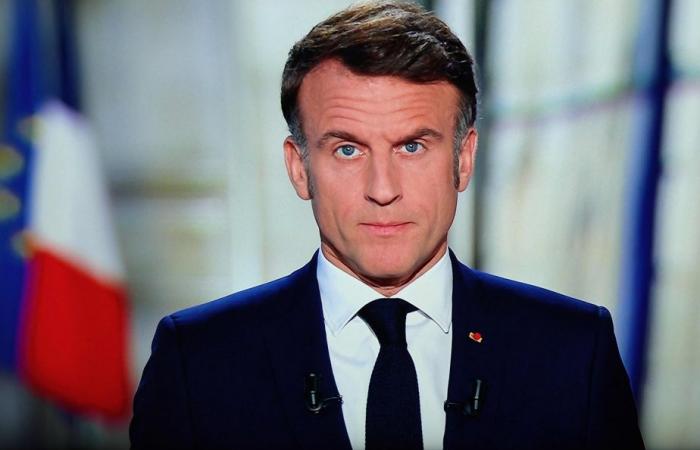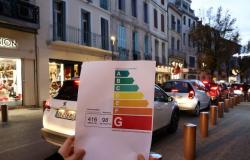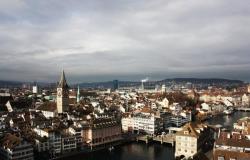
(Paris) French President Emmanuel Macron clearly made his mea culpa on Tuesday on the dissolution of the National Assembly, which sowed “divisions” and “instability”, and urged Europeans to “put an end to naivety” in matters of commerce or agriculture.
Posted yesterday at 4:00 p.m.
Francesco FONTEMAGGI
Agence France-Presse
Deprived of a large part of his influence since his camp lost the early legislative elections in the summer, the head of state also announced, during his wishes for 2025, that he would ask for the year opens itself to the French to “decide” on certain “determining issues” to prepare for the future.
A way of giving a glimpse of referendums, mentioned many times, but never organized since his arrival at the Élysée in 2017, or new citizens’ conventions after those on the end of life or ecology.
Recorded in the winter garden of the presidential palace, these eighth wishes from Emmanuel Macron are also the shortest, at eleven minutes. And for good reason: the president no longer has the means to decide everything as he used to do, and falls back on his role as “guarantor”, according to those around him.
He focused at length, at the start of his speech, on the successes of 2024. With an innovation in form: a two-minute video showing the Olympic Games or the reopening of Notre-Dame.
“Instability”
But Emmanuel Macron did not avoid the most serious political crisis of the Fifth Republic, with a clearer mea culpa than the one outlined at the beginning of December.
“I must recognize this evening that the dissolution has for the moment brought more divisions to the Assembly than solutions for the French,” he said. “Lucidity and humility require us to recognize that at this time, this decision has produced more instability than serenity. And I take my full share of it.”
A political instability which “is not specific to France, we also see it among our German friends who have just dissolved their Assembly”, he put it into perspective.
“It is not enough to recognize one’s responsibility, we must draw all the political conclusions: leave,” responded immediately the coordinator of the radical left party La France insoumise, Manuel Bompard.
Despite everything, the president calls on political forces to make 2025 the year of “collective recovery”. “Because we cannot afford to wait. The year 2025 must be a year of action,” urges the Head of State to the just-formed government of his ally François Bayrou, the fourth prime minister of the year.
Even if he can no longer set the tone for public policies, Emmanuel Macron shows that he does not intend to let the government damage its record.
He thus promised to “ensure” that France “continues to be attractive”, “works and innovates more”, continues to create jobs and “ensures its growth by maintaining its finances”. And this, while the country begins 2025 without a voted budget despite alarming deficits.
“European Awakening”
While the international and Europe remain presidential prerogatives, Emmanuel Macron also urged Europeans to “put an end to naivety” in matters of trade or agriculture.
Europeans must put an end to naivety. Say no to trade laws dictated by others and which we are the only ones to still respect. Say no to everything that makes us depend on others without compensation and without preparing our future.
Emmanuel Macron, President of France
The announcement at the beginning of December of the finalization of the free trade agreement between the European Union and four Mercosur countries (Argentina, Brazil, Paraguay and Uruguay) notably relaunched a wave of protests in the French and European agricultural world.
“We need a European awakening, a scientific, intellectual, technological, industrial awakening, an agricultural, energy and ecological awakening,” he pleaded.
With these wishes, Emmanuel Macron hopes to place himself above all, and keep away the little music of some of his opponents who consider his resignation inevitable before the end of his mandate, in 2027.





